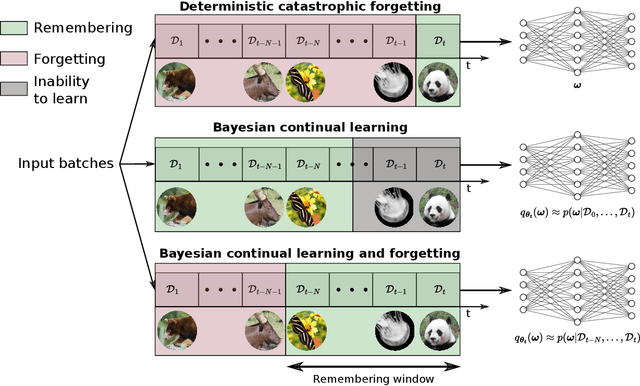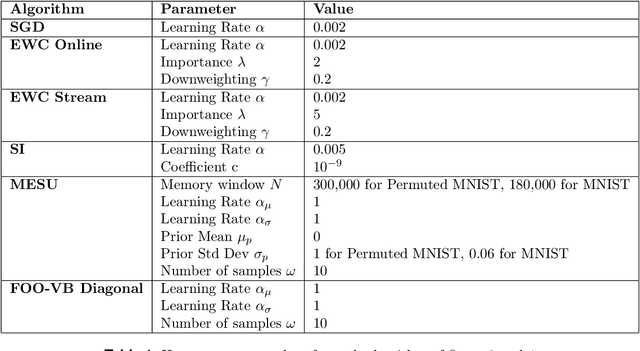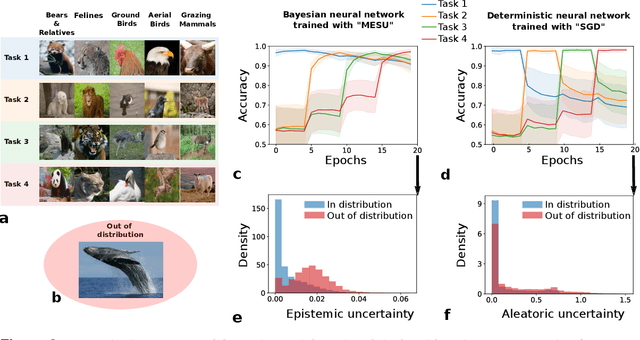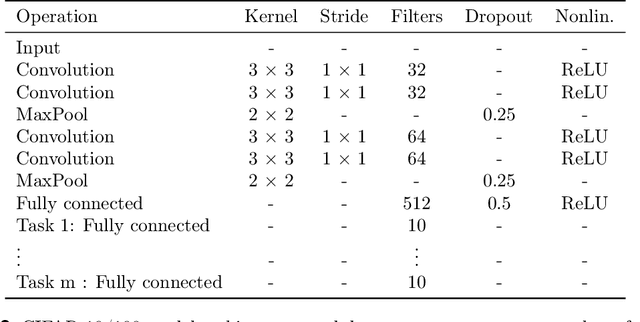Kellian Cottart
Bayesian continual learning and forgetting in neural networks
Apr 18, 2025



Abstract:Biological synapses effortlessly balance memory retention and flexibility, yet artificial neural networks still struggle with the extremes of catastrophic forgetting and catastrophic remembering. Here, we introduce Metaplasticity from Synaptic Uncertainty (MESU), a Bayesian framework that updates network parameters according their uncertainty. This approach allows a principled combination of learning and forgetting that ensures that critical knowledge is preserved while unused or outdated information is gradually released. Unlike standard Bayesian approaches -- which risk becoming overly constrained, and popular continual-learning methods that rely on explicit task boundaries, MESU seamlessly adapts to streaming data. It further provides reliable epistemic uncertainty estimates, allowing out-of-distribution detection, the only computational cost being to sample the weights multiple times to provide proper output statistics. Experiments on image-classification benchmarks demonstrate that MESU mitigates catastrophic forgetting, while maintaining plasticity for new tasks. When training 200 sequential permuted MNIST tasks, MESU outperforms established continual learning techniques in terms of accuracy, capability to learn additional tasks, and out-of-distribution data detection. Additionally, due to its non-reliance on task boundaries, MESU outperforms conventional learning techniques on the incremental training of CIFAR-100 tasks consistently in a wide range of scenarios. Our results unify ideas from metaplasticity, Bayesian inference, and Hessian-based regularization, offering a biologically-inspired pathway to robust, perpetual learning.
 Add to Chrome
Add to Chrome Add to Firefox
Add to Firefox Add to Edge
Add to Edge